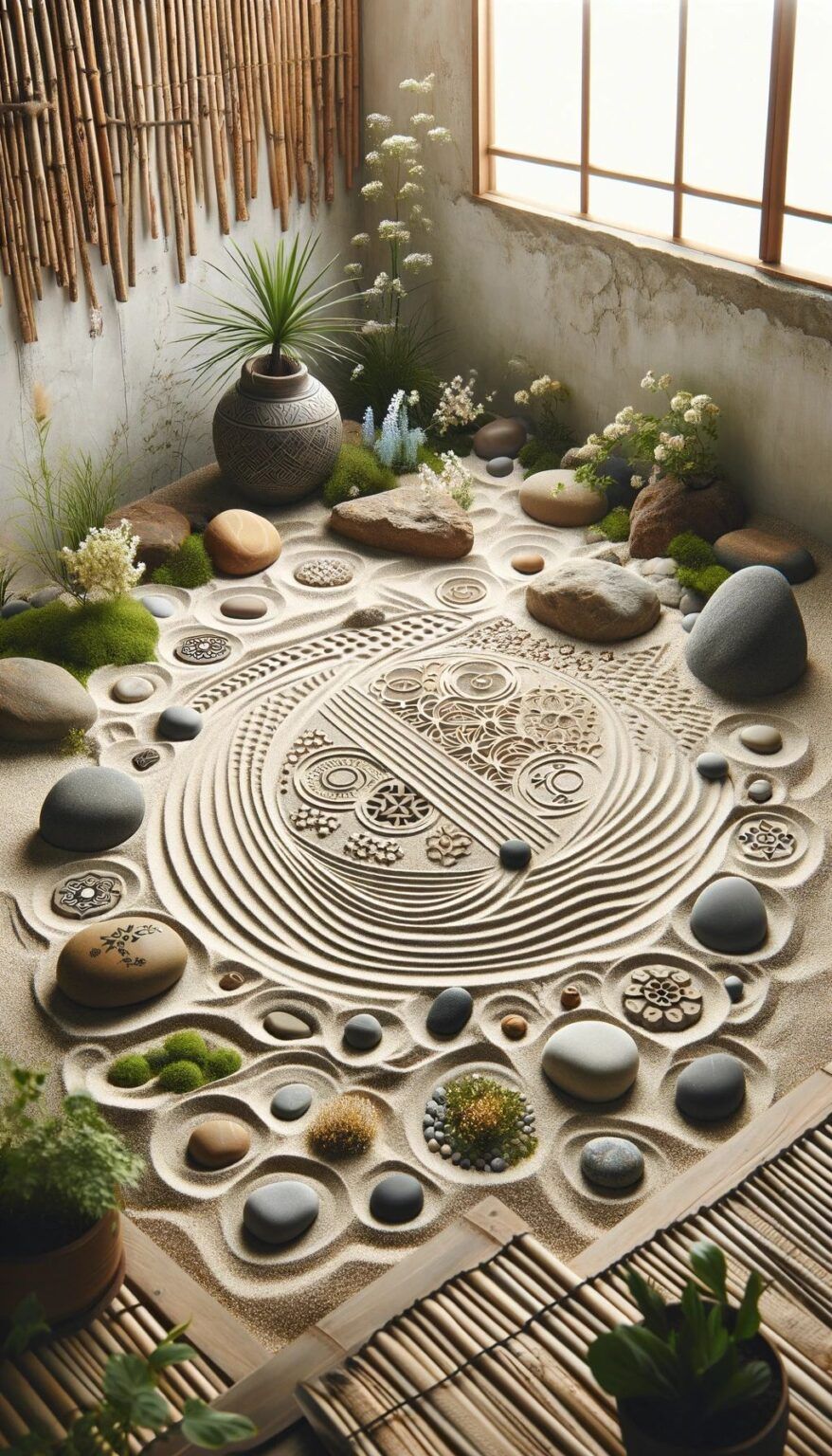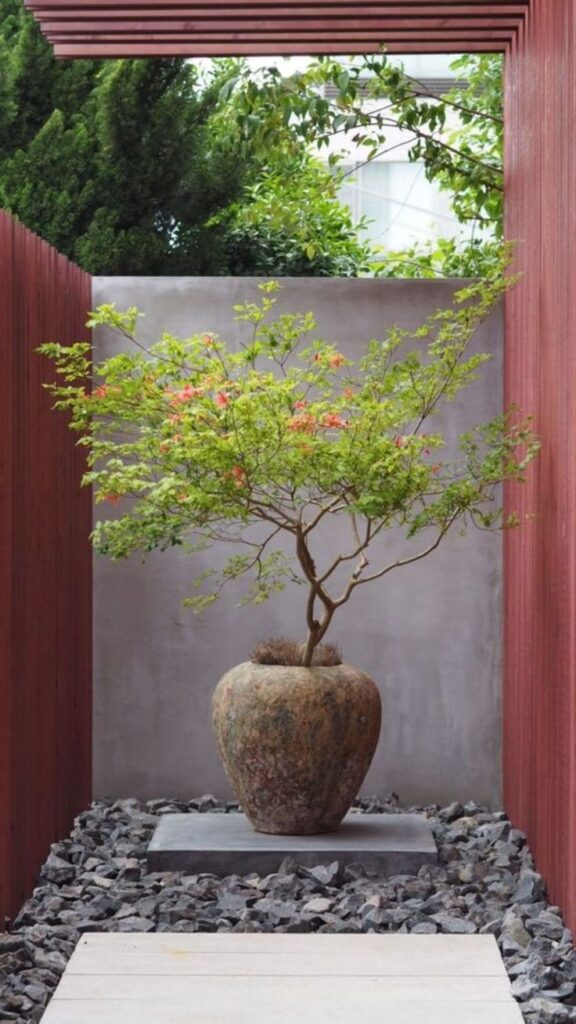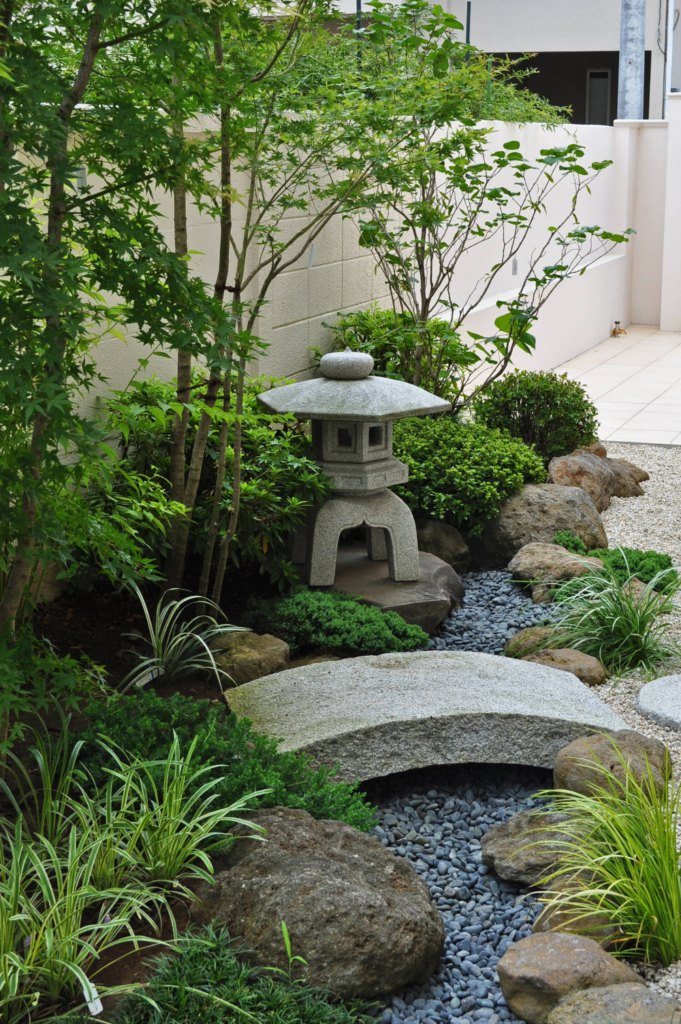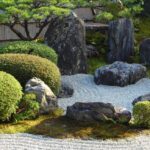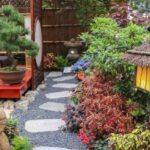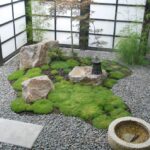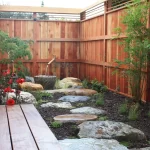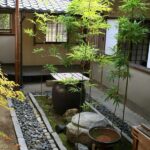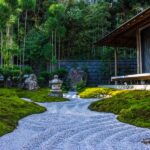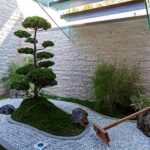A small Japanese Zen garden, also known as a “karesansui” garden, is a miniature landscape designed to promote meditation and contemplation. These gardens typically feature a combination of rocks, gravel, sand, and plants arranged in a simple and harmonious manner. The design of a Zen garden is meant to evoke feelings of tranquility, simplicity, and stillness, allowing visitors to find peace and clarity in the midst of their busy lives.
One of the key elements of a small Japanese Zen garden is the use of rocks and gravel to represent water, islands, and mountains. These elements are arranged in a way that creates a sense of balance and harmony, encouraging visitors to reflect on the natural world and their place within it. The raked patterns in the gravel are meant to mimic the ripples of water or the contours of a mountain, further enhancing the meditative quality of the garden.
Plants are also an important component of a small Japanese Zen garden, although they are typically kept to a minimum to maintain the simplicity of the design. Trees, shrubs, and grasses may be used to add a touch of greenery and reinforce the sense of a natural landscape, but they are carefully chosen and pruned to ensure they do not overwhelm the overall aesthetic of the garden. Bamboo, moss, and pine trees are commonly found in Zen gardens, as they are considered to have symbolic and spiritual significance in Japanese culture.
The design of a small Japanese Zen garden is typically asymmetrical, with carefully balanced elements that create a dynamic sense of movement and energy. This asymmetry is meant to represent the imperfections and unpredictability of the natural world, while still maintaining a sense of order and harmony. Visitors are encouraged to explore the garden from different angles and perspectives, allowing them to appreciate the beauty and complexity of the design from every angle.
In addition to their aesthetic and meditative qualities, small Japanese Zen gardens are also used as a tool for mindfulness and stress relief. The act of raking the gravel or sand in the garden can be a meditative practice in itself, allowing visitors to focus their thoughts and emotions on the simple act of creating patterns and shapes. The peaceful atmosphere of the garden, combined with the rhythmic sound of the rake, can help to calm the mind and bring a sense of clarity and relaxation.
Overall, a small Japanese Zen garden is a powerful and evocative representation of the natural world, designed to inspire contemplation, meditation, and peace. Whether used as a tool for relaxation and stress relief, or simply as a beautiful and tranquil place to escape from the hustle and bustle of everyday life, these gardens offer a unique and enriching experience for visitors of all ages.
